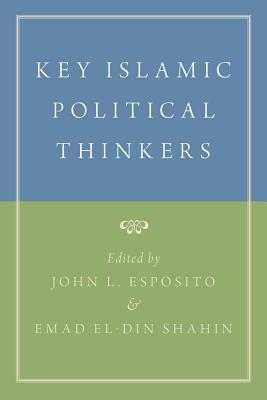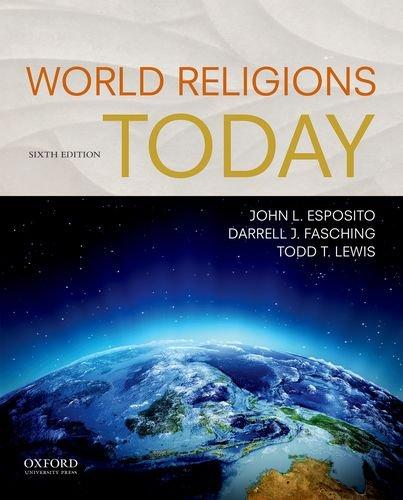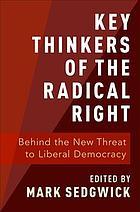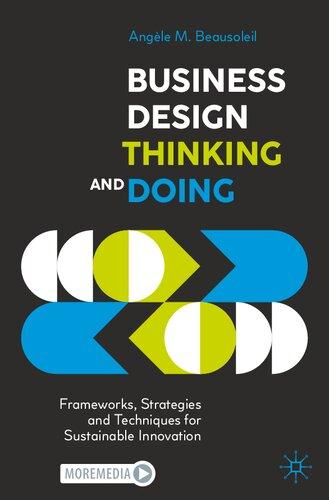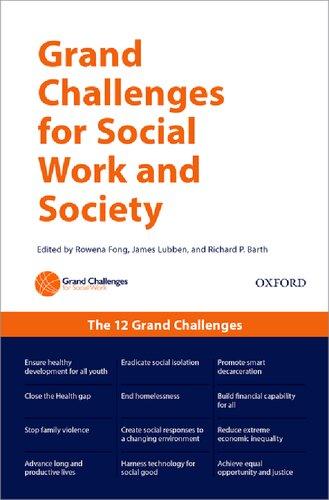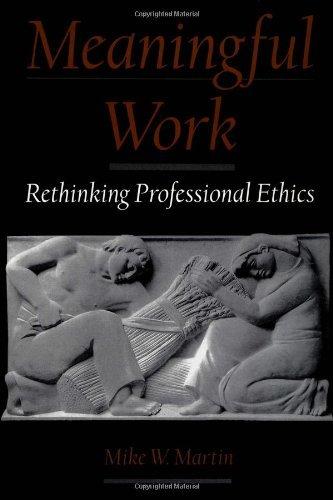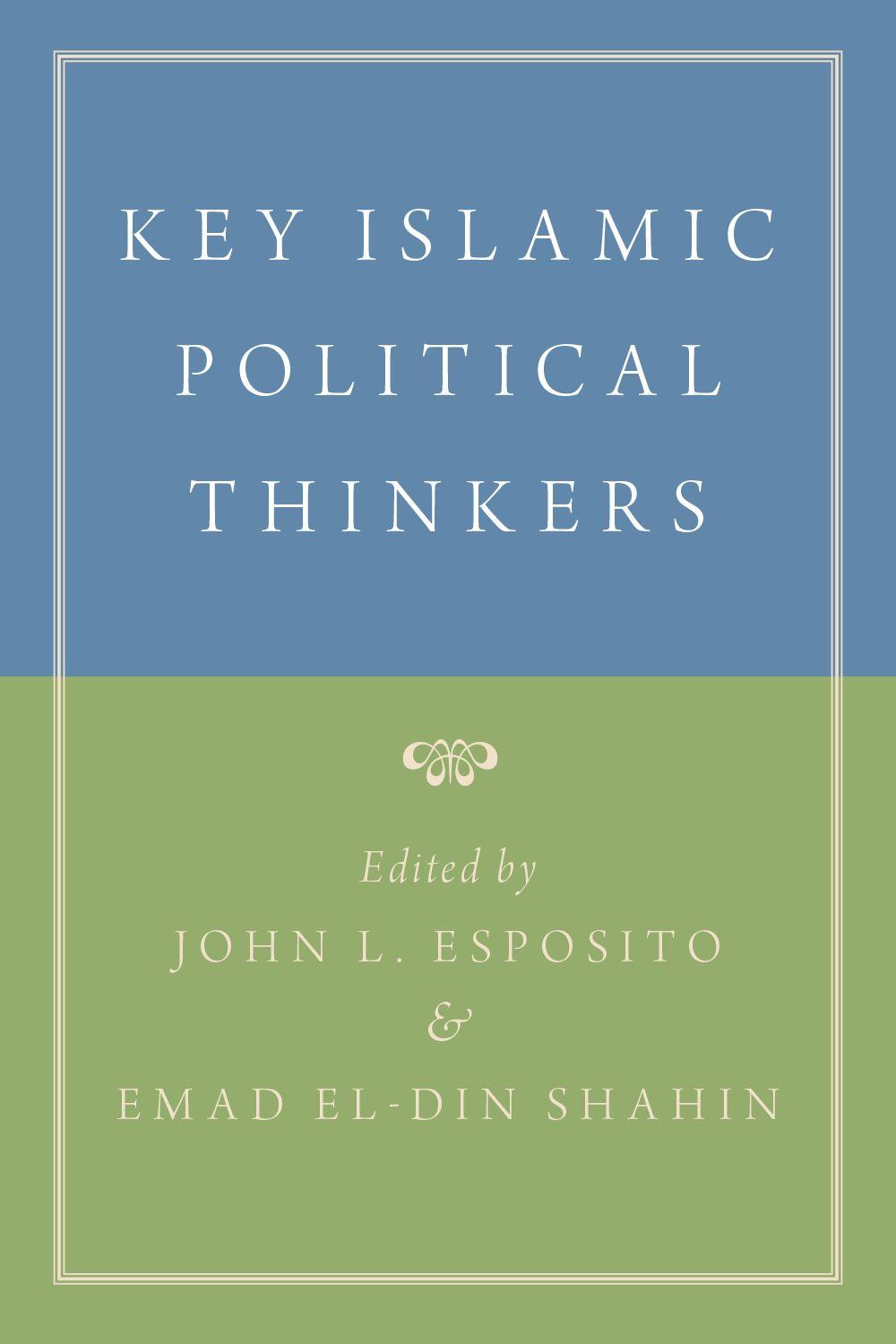https://ebookmass.com/product/key-islamic-politicalthinkers-john-l-esposito/
Instant digital products (PDF, ePub, MOBI) ready for you
Download now and discover formats that fit your needs...
World Religions Today 6th Edition John L. Esposito
https://ebookmass.com/product/world-religions-today-6th-edition-johnl-esposito/
ebookmass.com
Islamophobia and Radicalization: Breeding Intolerance and Violence John L. Esposito
https://ebookmass.com/product/islamophobia-and-radicalizationbreeding-intolerance-and-violence-john-l-esposito/
ebookmass.com
Key Thinkers Of The Radical Right: Behind The New Threat To Liberal Democracy Mark J. Sedgwick
https://ebookmass.com/product/key-thinkers-of-the-radical-rightbehind-the-new-threat-to-liberal-democracy-mark-j-sedgwick/
ebookmass.com
5 Steps to a 5: AP Calculus BC 2024, Elite Student Edition
William Ma
https://ebookmass.com/product/5-steps-to-a-5-ap-calculusbc-2024-elite-student-edition-william-ma/
ebookmass.com
Business Design Thinking and Doing : Frameworks, Strategies and Techniques for Sustainable Innovation 1st ed. 2022 Edition Angèle M. Beausoleil
https://ebookmass.com/product/business-design-thinking-and-doingframeworks-strategies-and-techniques-for-sustainable-innovation-1sted-2022-edition-angele-m-beausoleil/
ebookmass.com
Grand Challenges for Social Work and Society 1st Edition
Rowena
Fong (Editor)
https://ebookmass.com/product/grand-challenges-for-social-work-andsociety-1st-edition-rowena-fong-editor/
ebookmass.com
MCSA Guide to Identity with Windows Server® 2016, Exam 70-742 1st Edition Greg Tomsho
https://ebookmass.com/product/mcsa-guide-to-identity-with-windowsserver-2016-exam-70-742-1st-edition-greg-tomsho/
ebookmass.com
Meaningful Work: Rethinking Professional Ethics (Practical and Professional Ethics) 1st Edition, (Ebook PDF)
https://ebookmass.com/product/meaningful-work-rethinking-professionalethics-practical-and-professional-ethics-1st-edition-ebook-pdf/
ebookmass.com
The Role of Phytonutrients in Metabolic Disorders Haroon Khan
https://ebookmass.com/product/the-role-of-phytonutrients-in-metabolicdisorders-haroon-khan/
ebookmass.com
1
Oxford University Press is a department of the University of Oxford. It furthers the University’s objective of excellence in research, scholarship, and education by publishing worldwide. Oxford is a registered trade mark of Oxford University Press in the UK and in certain other countries.
Published in the United States of America by Oxford University Press 198 Madison Avenue, New York, NY 10016, United States of America.
© Oxford University Press 2018
The essays in this volume were originally published in The Oxford Handbook of Islam and Politics
All rights reserved. No part of this publication may be reproduced, stored in a retrieval system, or transmitted, in any form or by any means, without the prior permission in writing of Oxford University Press, or as expressly permitted by law, by license, or under terms agreed with the appropriate reproduction rights organization. Inquiries concerning reproduction outside the scope of the above should be sent to the Rights Department, Oxford University Press, at the address above. You must not circulate this work in any other form and you must impose this same condition on any acquirer.
Library of Congress Cataloging-in-Publication Data
Names: Esposito, John L., editor. | Shahin, Emad Eldin, 1957- editor.
Title: Key Islamic political thinkers / edited by John L. Esposito and Emad El-Din Shahin.
Description: New York, NY : Oxford University Press, 2018. | Includes index.
Identifiers: LCCN 2018013406 (print) | LCCN 2018015122 (ebook) | ISBN 9780190900366 (updf) | ISBN 9780190900373 (epub) | ISBN 9780190900359 (pbk.) | ISBN 9780190900342 (hardcover) Subjects: LCSH: Political science-Islamic countries. | Political science-Philosophy. | Islam and politics.
Classification: LCC JA84.I78 (ebook) | LCC JA84.I78 K49 2018 (print) | DDC 320.55/70922—dc23
LC record available at https://lccn.loc.gov/2018013406
1 3 5 7 9 8 6 4 2
Paperback printed by WebCom, Inc., Canada
Hardback printed by Bridgeport National Bindery, Inc., United States of America
Chapter 1: Hassan al-Banna 17
Ahmad Moussalli
Chapter 2: Mawlana Mawdudi 44
Joshua T. White and Niloufer Siddiqui
Chapter 3: Sayyid Qutb 67
Shahrough Akhavi
Chapter 4: Ali Shari`ati
Shahrough Akhavi
Chapter 5: Ayatollah Khomeini
Mojtaba Mahdavi
Chapter 6: Hassan al-Turabi
Peter Woodward
Chapter 7: Rashid al-Ghannushi
Azzam Tamimi
Chapter 8: Yusuf al-Qaradawi
Bettina Gräf
Chapter 9: Mohammad Khatami
Mahmoud Sadri and Ahmad Sadri
Chapter 10: Abdolkarim Soroush
Behrooz Ghamari-Tabrizi
CONTRIBUTORS
Shahrough Akhavi is Distinguished Professor Emeritus in the Department of Political Science at the University of South Carolina.
John L. Esposito is Professor of Religion and International Affairs and Founding Director of the Prince Alwaleed Bin Talal Center for Muslim-Christian Understanding in the Walsh School of Foreign Service at Georgetown University.
Behrooz Ghamari-Tabrizi is Professor of sociology and history at the University of Illinois, Urbana-Champaign.
Bettina Gräf is a Researcher of Arabic and Islamic studies at Ludwig-MaximiliansUniversität in Munich.
Mojtaba Mahdavi is the Edmonton Council of Muslim Communities Chair in Islamic Studies and Associate Professor of political science at the University of Alberta.
Ahmad Moussalli is Professor of political studies at American University of Beirut.
Ahmad Sadri is Gorter Professor of Islamic World studies and Professor of Sociology at Lake Forest College.
Mahmoud Sadri is Professor of sociology at the Federation of North Texas Universities.
Emad El-Din Shahin is the Dean of the College of Islamic Studies, Hamad bin Khalifa University, Qatar Foundation, and a Senior Fellow at Georgetown University.
Niloufer Siddiqui is a postdoctoral fellow in the Department of Political Science at the Rockefeller College of Public Affairs and Policy, State University of New York at Albany.
Azzam Tamimi is an academic and political activist and the former director of the Institute of Islamic Political Thought.
Joshua T. White is Associate Professor of the Practice of South Asia studies and Senior Fellow at the Edwin O. Reischauer Center for East Asia Studies at the Paul H. Nitze School of Advanced International Studies at Johns Hopkins.
Peter Woodward is Professor of politics at the University of Reading.
NOTE ON TRANSLITERATION
Due to variance in usage, rather than attempt to impose a style of transliteration across the entire volume, we have allowed each author to transliterate foreign-language terms according to his or her stylistic preference.
Key Islamic Political Figures
JOHN L. ESPOSITO AND EMAD EL-DIN SHAHIN
INTRODUCTION
The purpose of this book is to help readers understand the different streams within contemporary Muslim political thought. Each essay in this book explores the work of a key twentieth-century Islamic thinker whose influence stretches beyond his home country. Many of these figures are still active, and their thought continues to affect thousands of Muslims. The choice of a specific time frame should not indicate any discontinuity in the intellectual stream within Muslim societies. In fact, we see the evolution of Muslim political thought as a continuous process that in a few cases manifests a clear organic connection. For example, one can trace a continuous path from the Islamic reformer Jamal al-Din al-Afghani (1838–1879) to Muhammad `Abduh (1849–1905), Muhammad Rashid Rida (1865–1935), Hassan al-Banna (1906–1949), and today’s Muslim Brothers. Similar connections can be easily traced between generations of intellectuals in other parts of the Muslim world, not only chronologically but also across borders as certain intellectuals or movements in one country see themselves as the heirs of reformers in another.
Obviously, the context in which this discourse evolved has been extremely important. The last two centuries have been vibrant yet turbulent and unsettling. Three transformative developments had the greatest bearing on Islamic political thought: the decline of the old order and eventual collapse of the caliphate; colonial occupation and the continuation of external hegemony; and the rise of secular Muslim intellectuals and secular movements. They were accompanied by the demise of the old legal and social structures (the old order); the emergence of nation-states; increased westernization and modernization; the creation of Israel and repeated defeats and humiliations of Muslims; the rise of Islamic revival movements; globalization; and the rise of nonstate actors and resistance.
FOUNDERS OF POLITICAL ISLAM
This book focuses on key Muslim intellectual figures from various schools of contemporary political Islam. “Political Islam” here refers to attempts by individuals, groups, and movements to reconstruct the political, economic, and social dimensions of their societies along Islamic lines, including an orientation toward shari`a and an approach to the questions of whether and how to establish an Islamic state. Given the countless number of Muslim intellectuals who have emerged over the past century and a half seeking to reform Islam from within, no single volume could hope to offer an exhaustive survey of Islamic political thought. Instead, we have chosen a selection of thinkers that is, we think, representative of the main streams in contemporary Muslim political thought and of its principal themes. We have divided those thinkers into three main categories: the founders of political Islam, revolutionary ideologues, and the “intellectuals” of political Islam. Hassan al-Banna and Abu
al-A`la al-Mawdudi are rightly considered the forefathers of contemporary political Islam. Both reinterpreted the faith to make religion a vehicle for social and political action. This understanding became a common feature of political Islam. For al-Banna and Mawdudi the fulfillment of tawhid—the unity of God—is manifest in political unity under shari`a as a comprehensive way of life, central government, and an Islamic caliphate. After the collapse of the caliphate, which for centuries had acted as the symbol of the political unity of the umma (the global community of Muslims), al-Banna and Mawdudi proposed shari`a as an alternative unifying concept. Shari`a engenders the submission of the Muslim community not to an unsalvageable and bygone caliphate and central caliph but to a superior yet abstract and immutable notion that also can act as a unifying bond. Shari`a becomes a new source of legitimacy for the state, constitutional guidelines, and political authority. In brief, both al-Banna and Mawdudi succeeded in reproducing shari`a as a comprehensive body of laws, a way of life, guidelines for Muslims, divine legislation, a source of unity and stability for the Muslim community, and a shared worldview.
Al-Banna and Mawdudi also succeeded in producing a coherent blueprint for a revivalist Islam that consists of an ideology, organization (the avant-garde party), and activism. They emphasized individual activism and individual engagement in community affairs as a religious duty. As the chapters on al-Banna and Mawdudi show, both men provided intellectual blueprints that attempted to explain the reasons for the decline of Muslim society and the ways to revive it. Al-Banna and Mawdudi also institutionalized two major Islamic organizations in their respective countries that survived beyond their lifetimes. Another lasting impact of these two founders has been the centrality of the state to political Islam and Islamic activism. Al-Banna sees Islam as din wa dawla (both religion and state),
while for Mawdudi, shari`a cannot function without the agency of the state. An Islamic political system is critical for Mawdudi. If a government discards the revealed laws it becomes illegitimate, and its authority will not be binding. As for al-Banna, despite his recognition of the need to “form” the Muslim individual, the Muslim family, the Muslim society as the bases for establishing an Islamic state, he viewed the centrality and supremacy of the state as necessary for keeping the balance and well-being of the umma and creating an allencompassing Muslim way of life.
Finally, with regard to their perceptions of the West, both alBanna and Mawdudi believed that there is not much the West could offer Islam. Islam contained all the necessary values for progress, and only via a Muslim revival could Muslim societies achieve modernity. Unlike the Westernized elite, they wanted to subordinate modernity to Islam, not the other way around.
In his analysis of the intellectual thought of Hassan al-Banna, Ahmad Moussalli focuses on al-Banna’s religious and political discourse. He discusses al-Banna’s intellectual framework under three central principles: Islam and politics, the Islamic state and shari`a, and democracy and shura (consultation). In this chapter, Moussalli traces the connection al-Banna makes between a metaphysical tawhid and its political articulations. According to Moussalli, al-Banna demonstrated the possibility of synthesizing Western political thought and contemporary Islamic political frameworks (similar to his predecessors Afghani and `Abduh). For example, he believed that it was possible to assimilate democracy with the Islamic concept of shura and comprehensive governance. Moussalli shows how this central concept has evolved within Islamic movements to become a source of legitimation (or delegitimation) of regimes and a reason for their seizure of power in the name of the people.
In their chapter on Mawdudi and his intellectual framework, Joshua T. White and Niloufer Siddiqui highlight the significance of context in shaping his ideas, starting with the collapse of the caliphate, which forced Muslims to live within the boundaries of a nation-state, not a universal Islamic one. For them, “Mawdudi delivered a message that spoke to his age and provided a template for those engaged in constitutional experimentation in a newly established Pakistani state.” Indeed, the impact of Mawdudi’s ideas and thought was felt well beyond Pakistan. White and Siddiqui maintain that Mawdudi’s ideas helped in shaping “the contours of modern Islamic discourse.”
REVOLUTIONARy IDEOLO g UES
The revolutionary ideologues of political Islam reject the prevailing order in their respective societies and advocate a radical and comprehensive change of the existing systems. The revolutionary ideas of Sayyid Qutb, Ali Shari`ati, and Ayatollah Khomeini were the product of their postcolonial context. This context was dominated by increasing secularization and westernization as a state-adopted model of development, the emergence of a bipolar system and the entanglements of the Cold War, and the growing state repression and suppression of Islamic movements. Turkey’s Ataturk model was a source of inspiration for leaders such as Reza Khan of Iran, Zahir Shah of Afghanistan, Nasser of Egypt, and Bourguiba of Tunisia, who all acknowledged Ataturk’s influence on them and attempted to emulate his style of rule. Instead of adopting systems that took Islam seriously, a Kemalist model that rested on one-man rule, a single party, populism, statism, demagoguery, secularization, and central planning prevailed.
Qutb, Shari`ati, and Khomeini share common features as revolutionary ideologues. They all tried to achieve a total break with the Kemalist model and the existing order. They vehemently rejected the secular postindependence framework and advocated severing any ties with it. While focusing on the “delegitimation” of that framework, they were also critical of the traditional religious establishment. Their criticism (to a lesser degree with Khomeini) was aimed at the members of society who either followed these jahili (un-Islamic) regimes or accepted submission to “black” Shiism (the type of distorted Islam promoted by the monarchy and its co-opted religious scholars). All were revolutionaries in the true sense, as they called for bringing about a radical change in their respective societies. For Qutb, all existing systems were jahili (un-Islamic) and had to be replaced by an Islamic one. Shari`ati envisioned a totally new system following the footsteps and exemplar of the imam. He reinterpreted the imamate to mean “a committed and revolutionary leadership, responsible for the movement and growth of society on the basis of its worldview and ideology, and for the realization of the divine destiny of man in the plan of creation.”1 Imam Khomeini provided that leadership, the “formula” that mobilized the entire Iranian people toward the fulfillment of Shari`ati’s dream. That formula was the rule of the jurist, wilayat al-faqih, and the Islamic government.
Another feature common to Qutb, Shari`ati, and Khomeini is that all had a strong faith in Islam as an alternative to capitalism and socialism. For them the West had become ideologically bankrupt in both its capitalist and socialist iterations. Decades before Samuel Huntington, they believed that the conflict between Islam and the West was religious and cultural in essence. For Sayyid Qutb, the West’s racism and moral promiscuity epitomized modern-day
jahiliyyah. Sharia`ti was critical of capitalism for its enslavement of the human being and socialism for its vulgarity. For Khomeini, the West was toxic and entirely irrelevant to his model.
Despite these similarities, some differences stand out. Khomeini had a clearer vision of the type of government he wanted to build (theocratic-populist) and the way to achieve it. Shari`ati was most original in thought, particularly in carving new meanings that had a profound practical impact on the Shi`a community. Qutb broadened the concept of jahiliyyah, or “disbelief/un-Islamic,” to include the West and the Muslim societies, thus reenhancing a severe state of polarization, an irreconcilable one, between Islam and the West.
Sharough Akhavi’s chapters on Ali Shari`ati and Sayyid Qutb tread the different contours of their lives and ideas. He sees Shari`ati’s greatest contribution in the practical impact of his ideas more than their ideological coherence. Akhavi describes Shari`ati as a tragic figure who held a strong belief and a deep sense of mission to change his society and the world, a will to induce collective change and mobilize nations, and unwavering determination to confront not only local tyrants but also international hegemons. In fact, these traits apply to Qutb as well, indeed to many of the key figures in this book. Some wrote their memoirs while in their midthirties, in anticipation of their premature deaths; others met their fates in a tragic way by execution or assassination.
In his chapter on Ayatollah Khomeini, Mojtaba Mahdavi traces the evolution of Khomeini’s thinking through five distinct stages, beginning with political quietism and concluding with political absolutism. Mahdavi contends that Khomeini’s transition from quietism to activism was a result of his fear of increasing secularization and the need to institutionalize the revolution. Mahdavi considers the postrevolution Iranian regime Khomeini’s most significant legacy.
THE INTELLECTUALS OF POLITICAL ISLAM
Those whom we have termed the “intellectuals” of political Islam make an excellent case for the diversity and complexity of contemporary Muslim discourse. Their intellectual interests may seem similar (renewal of religion, modernizing Islam, views on women, views on the West), but their approaches and ways of thinking can be quite different. What distinguishes them from other intellectuals who have concerned themselves with political Islam is the fact that they maintain a critical view of Islamic heritage as well as of secularism. They advocate a realistic (a historic) view of Muslim history and the Muslim experience. Their intellectual discourse reflects a deep concern with the renewal of Islamic thought and practices from within and with engaging in meaningful debates about modern intellectual challenges in their societies. Unlike most of the Muslim thinkers in our first two categories (the founders of political Islam and the revolutionary ideologues), their views are often controversial and seek to end the polarization between Islam and the West. Most do not recognize the “state” as a central requisite for the fulfillment of the Islamic way of life. In fact, they call for a noninterventionist state. Shari`a is not the main determinant of the legitimacy of a regime. For Rashid al-Ghannushi, for example, a regime is neither Islamic nor legitimate if it does not permit the people to express their freedom and will in society.
Each thinker’s context and education played a major role in shaping this synthesizing orientation. Most are well-grounded in both traditional and modern education, bilingual, and well-exposed to Western philosophies and debates (either educated in the West or thoroughly studied or taught Western philosophy). All are in opposition to authoritarian and autocratic regimes, strongly advocate freedoms and democracy, and seek to engage positively with global
intellectual currents and philosophical ideals. In this regard, they have contributed to steering the Islamic intellectual discourse away from Qutb’s and Mawdudi’s defiant approaches to the West.
Peter Woodward explores Hassan al-Turabi’s efforts to forge connections among the Islamic state, democracy, and popular sovereignty. The innovative ideas of most of the intellectuals in this category are rejected by conservatives and hardliners in their countries; outsiders view their attempts at synthesis with skepticism as well. Woodward highlights this dilemma this way: “Turabi’s approach to democracy, which appeared to be that of liberalism in an Islamic context, led to criticisms of him for a series of steps that seemed opportunistic.” In his chapter on Ghannushi, Azzam Tamimi argues that among contemporary Islamic thinkers and activists, “Rashid alGhannushi is distinguished by his daring and innovative endeavors to introduce new dimensions in contemporary Islamic thought.” Indeed Ghannushi has provided fresh ideas on public freedoms in the Islamic state, citizenship, civil society, women, democracy, and the need for specialization within the Islamic movements and separation between political practice and Islamic da`wa (call to Islam).
Bettina Gräf demonstrates the wide scope of issues that shaykh Yusuf al-Qaradawi—a highly prolific writer who produced more than 160 books—has dealt with. Graff discusses Qaradawi’s contributions on the issues of tajdid or renewal, the “Islamic Solution,” the moderation of the middle way (wasatiya), the Islamic Awakening, Muslim minorities, gender relations, democracy and pluralism, and the use of violence, among many other topics.
Mahmoud Sadri and Ahmad Sadri analyze Mohammad Khatami’s intellectual discourse and assess his place in the reformist movement in Iran. They highlight his distinguished contribution on the issues of cultural openness, human rights, political participation, and civic liberties. According to the Sadris, “Khatami’s sustained belief
in the compatibility of Islam, democracy, and modernity and his natural tendency toward civility and respect has thus engendered nothing short of a cognitive shift on the Iranian political discourse.”
Behrooz Ghamari-Tabrizi examines the intellectual discourse of Abdolkarim Soroush, tracing the various steps in Soroush’s intellectual journey. Ghamari-Tabrizi makes a brief comparison between Ali Shari`ati, the ideologue of the Iranian Revolution and Soroush, considering Soroush to represent the paradigmatic intellectual of the post-revolutionary era. He sees Soroush’s main contribution in the progress of Islamic theology and political philosophy.
D y NAMIC AND EVOLVIN g
As the chapters in this book show, Muslim intellectual discourse is a dynamic and evolving construct. Over more than a century, this discourse has developed on many issues. To mention but a few examples, the perception of Muslim weakness and decay it was originally attributed to external causes, but later to internal authoritarianism, despotism and lack of freedoms. A glorified and holistic view of Islamic history has given space to realistic and historicized perspectives of Islamic experiences, and in the case of Soroush, a historicized divine text. While early generations of Muslim political thinkers consider the adoption of shari`a as the basis on which to judge the legitimacy of a regime, later Muslim intellectuals viewed the regime’s respect of public freedoms as the source of its legitimacy. Perceptions of the Islamic state, its nature and role, have been evolving. The pioneers of contemporary political Islam portrayed the state as necessary to deliver society, fulfill shari`a, and achieve a comprehensive Islamic way of life. For later intellectuals, the state is still necessary, but it is the umma (society) that is truly central. The Islamic state is
the manifestation of the popular will. It should be noninterventionist and should not interfere in the personal choices of individuals. Civil society should be enhanced and should limit the power of the state. Khatami maintains that “the people must believe that they have the right to determine their own destiny and that the power of the state is bound by limits and constraints set by law. State authority cannot be attained through coercion and dictatorship” (chapter 9 here). These intellectuals present Islam not as self-contained but as open to benefiting from Western concepts and practices. Thus, they clearly contribute to ending the polarization between Islam and the West that characterized the thought of the founders of political Islam as well as the revolutionary ideologues.
We hope that this book shows these nuances and contributes to providing a better understanding of contemporary Muslim intellectual discourse.
NOTE
1. Ali Shariati, On the Sociology of Islam, trans. H. Algar (Berkeley, CA: Mizan Press, 1979), pp. 119–120.

